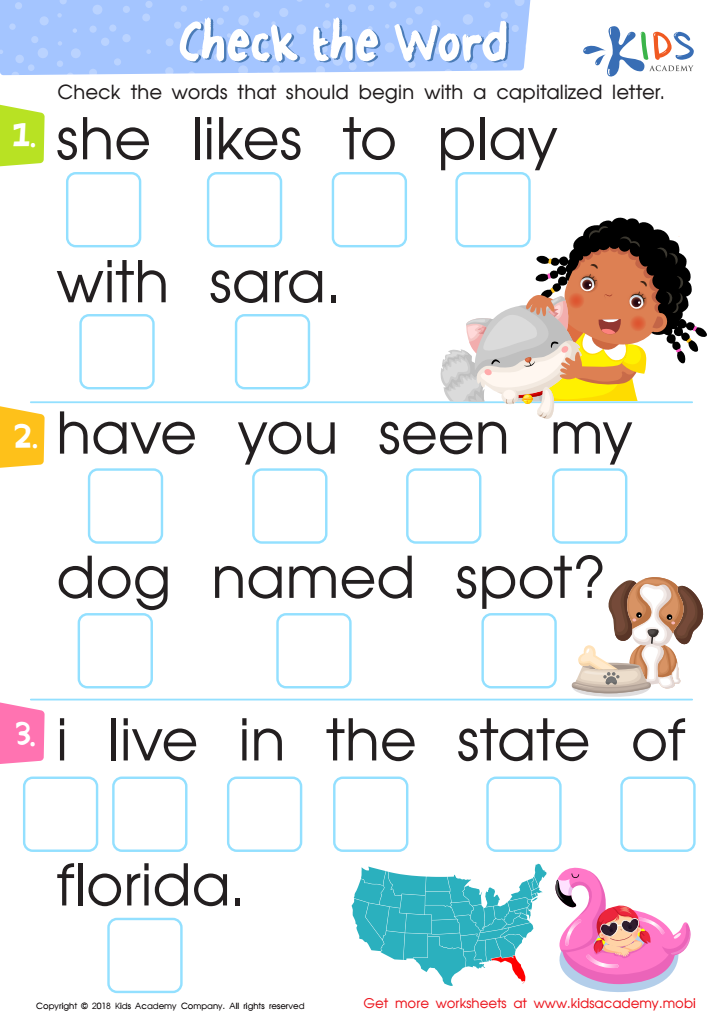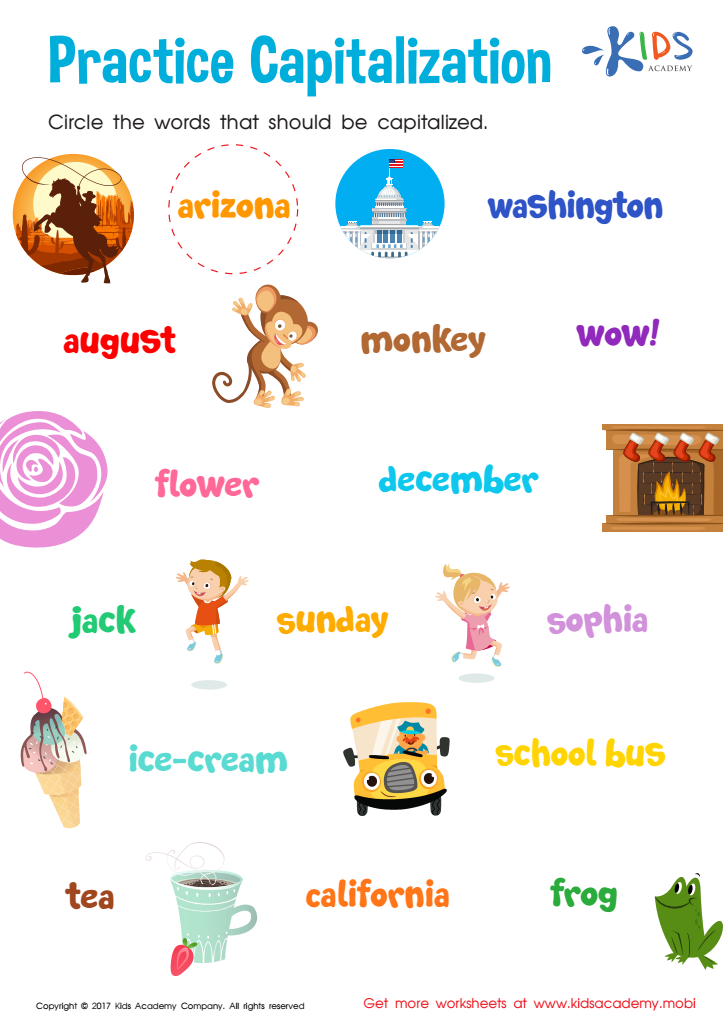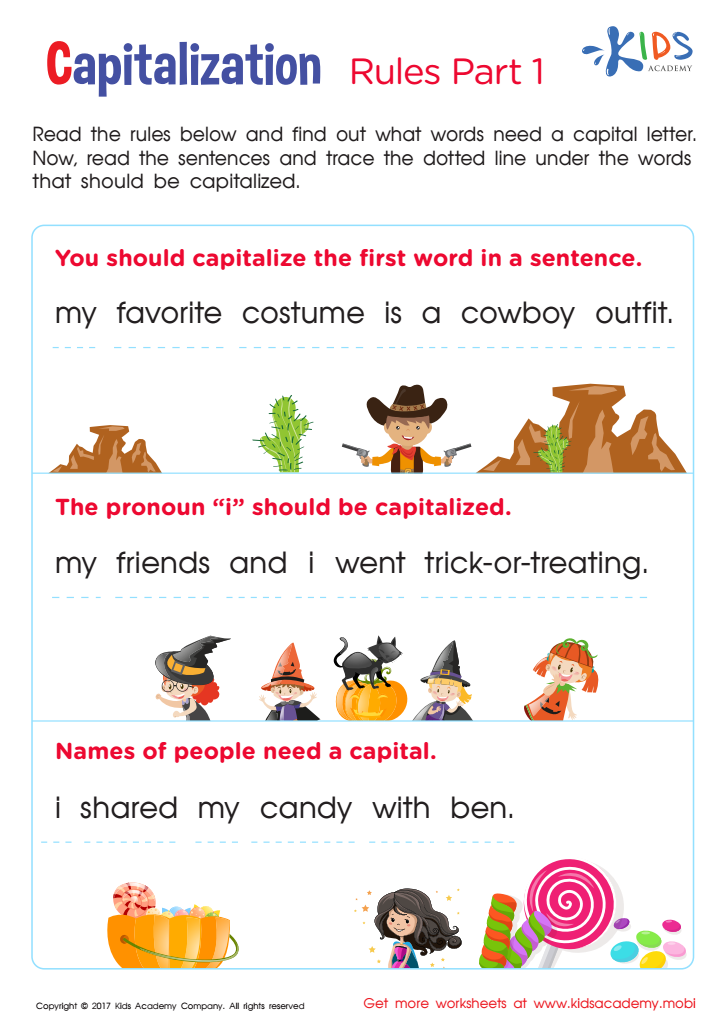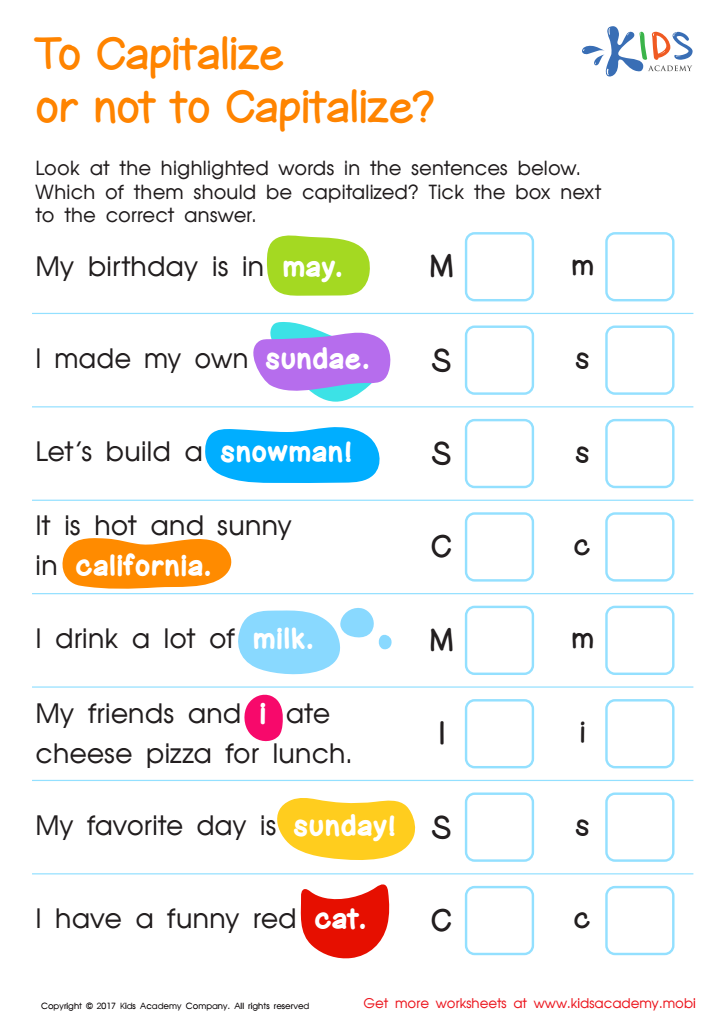Normal Capitalization Worksheets for Ages 3-6
4 filtered results
-
From - To
Explore our collection of Normal Capitalization Worksheets designed specifically for children ages 3-6. These engaging and educational worksheets help young learners grasp the basics of capitalizing letters, proper nouns, days of the week, and the first word in sentences. Filled with fun and age-appropriate activities, these printables support early writing skills and ensure your child understands the foundational rules of capitalization. Perfect for preschoolers and early elementary students, our carefully crafted worksheets make learning enjoyable and effective. Download now to start building your young writer’s confidence and mastery in capitalization!


Check the Word Worksheet


Practice Capitalization Printable


Capitalization Rules: Part 1 Worksheet


Capitalization: To Capitalize or Not? Printable
Normal capitalization is crucial for young children aged 3-6 as it sets the foundation for their literacy skills. At this formative stage, children are like sponges, able to absorb information effortlessly. If proper capitalization is introduced early on, it helps them internalize the rules of written language, which aids them in becoming proficient readers and writers.
Proper capitalization teaches children to recognize and understand sentence structures. They learn that sentences start with a capital letter and end with a period, exclamation mark, or question mark. This understanding helps them make sense of written text, boosting their reading comprehension skills.
Additionally, early instruction on capitalization promotes attention to detail. Young children learn that capital letters carry specific meanings, such as proper nouns or the first word in a sentence, which is essential for clear and effective communication. For example, capitalizing a proper noun like "Anna" distinguishes it from an ordinary word like "animal."
Teachers and parents play a vital role in modeling and reinforcing these rules through daily reading and writing activities. When adults consistently use correct capitalization, they set a positive example, helping children learn implicitly. In the long run, early familiarization with such conventions can significantly ease the transition to more formal writing and complex literacy skills.

 Assign to the classroom
Assign to the classroom









